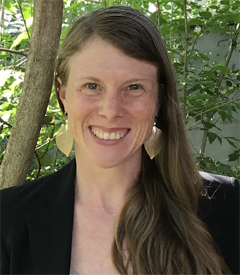
A Conversation With Carylynn Larson
Why do you believe SEL and EQ are important?
Many of us learn functional and technical skills in school, college and traditional training programs. But we often don’t learn how to improve collaborative action, how to create mutually-beneficially emotional connections with others, or how to have the purposeful, effective (and sometimes difficult) conversations that actually drive our most important results.
Do you have any personal anecdotes about how SEL/EQ has brought you success in your
personal life/career?
As an Executive Coach, I experience the power of EQ every day, both personally and through the experiences of my clients. Here’s an antidote that I share in my book, The Coaching Companion: For twenty years, Sharon was a highly accomplished human resources executive. In recent years, she found herself exhausted and overwhelmed by her position. One day, Sharon’s coach asked her about her social life. Initially, Sharon resisted this topic, seeing it as irrelevant to her sense of feeling overwhelmed. However, as soon as Sharon was willing to open up to her coach about her life outside of work, she realized that her career had so dominated her life that her friendships had become nonexistent. Sharon soon realized that she could handle the stress of management more effectively when she invested time in friendships outside of work. Although it was painful to shine a light in this dark corner of her life, Sharon was thankful for the doors it opened to a more fulfilling lifestyle.
What do you believe to be one or two of the main challenges in education (K-8) today?
In today’s VUCA (volatile, uncertain, complex, and ambitious) environment, our children face more stress than ever before. As parents and educators, we need to elevate our own capacity to handle complexity while concurrently finding effective ways to teach our children how to thrive alongside us.
Conversely, what do you believe to be one or two of the biggest opportunities in education (K-8) today?
As the world moves to a more integrated and global perspective, we have the opportunity to teach our children SEL/EQ in the context of nearly everything they do. Perhaps more so than ever before, there is a push toward integrated and connected education, where children can learn about SEL/EQ through history, science, and literature.